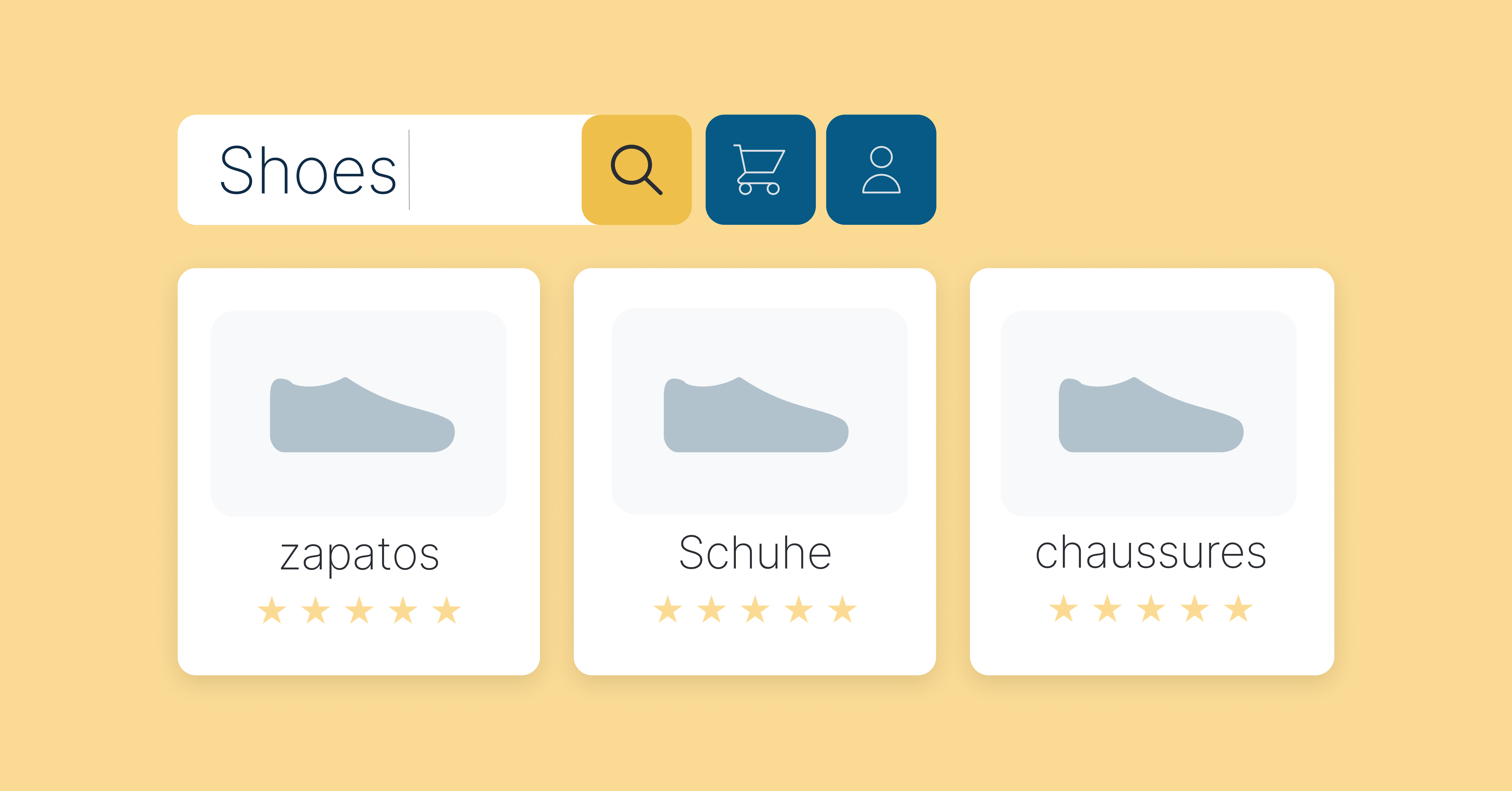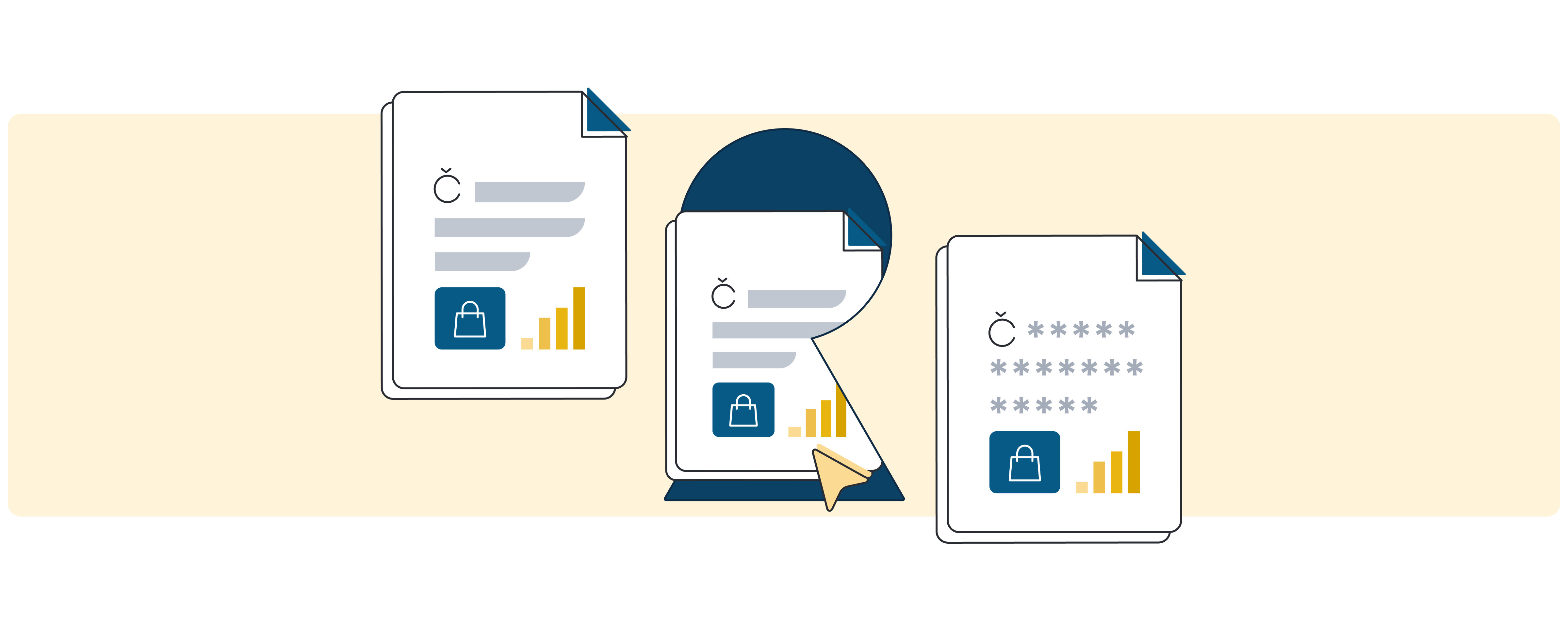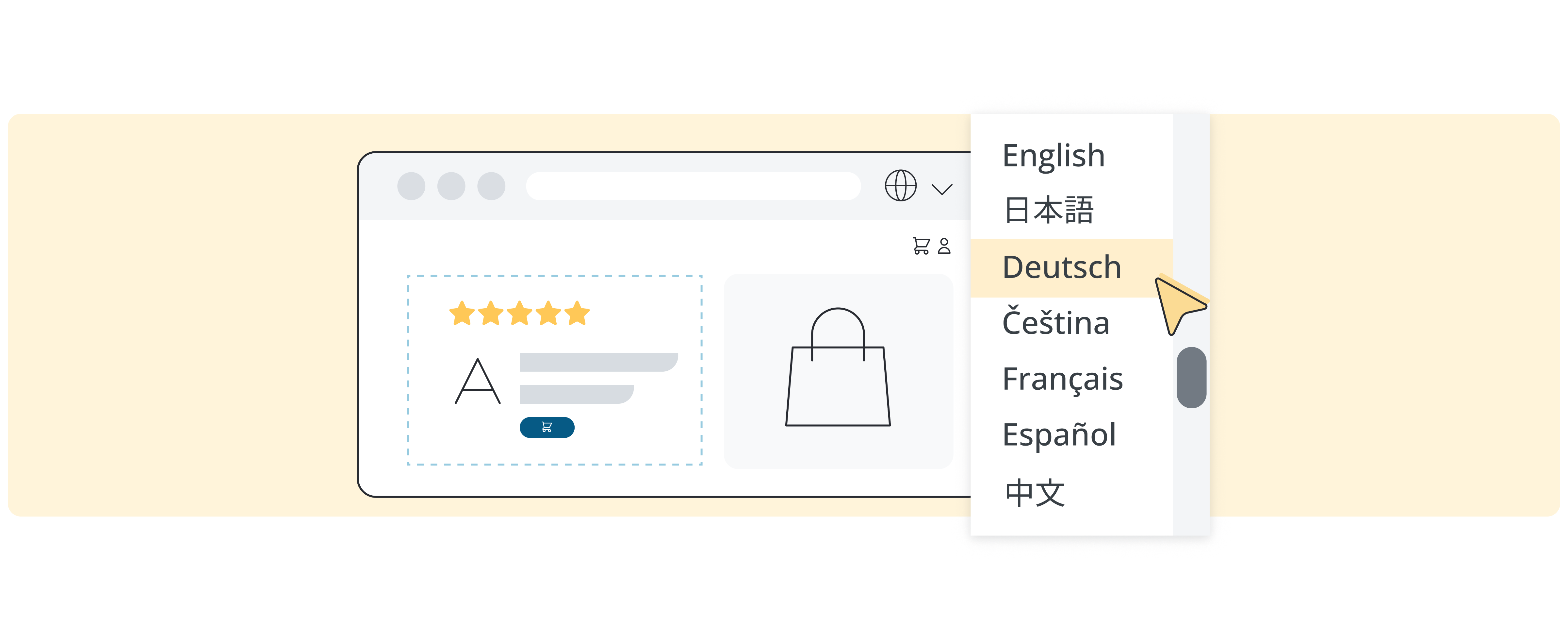A guide for retailers: selecting the right AI translation tool

In this post
- What you need to know about AI translation tools and the retail industry:
- What should you consider when choosing a retail translation solution?
- Who should be involved in the decision-making process?
- How are retail companies using AI translation to conquer global markets?
- 1. Localization of campaign assets for new product lines
- 2. Translation of internal systems for international organizations
- 3. Translation of website and product information
- 4. Translation of customer service applications
- How has DeepL impacted the bottom line?
- Scale your global localization efforts with AI translation
What you need to know about AI translation tools and the retail industry:
- Retailers should select a AI translation tool that suits their unique business needs
- Expanding to new markets requires a scalable localization solution
- From internal systems to product descriptions, there are many customer touch points where localized content is a must
Globalization, market expansion, multinational growth—no matter what you call it, it’s something no retailer can escape. To stay competitive in today’s high-pressure retail industry, companies need to expand into new markets efficiently. And that requires localization at scale.
Why? To truly connect with potential customers, retailers have to speak their language. From websites to customer service chats to social media, there’s so much communication between retailers and customers—and each touch point matters.
According to DeepL’s own research, 75% of marketers agree that localized content significantly boosts customer engagement. And it pays off—96% reported a positive ROI (return on investment) from localization efforts.*
Clearly, localization can boost companies’ globalization efforts, but how do you find the right localization solution for your business—one that balances accuracy, efficiency, and costs? This is where an AI-powered translation tool can help.
In this blog post, we’ll discuss what to consider when choosing an AI translation tool to support your retail company’s localization efforts. We’ll also share some lessons learned from our own research and explore how DeepL has helped international retailers with their bottom line.
To see how DeepL can support your retail company’s localization efforts, check out our DeepL for retail page.
What should you consider when choosing a retail translation solution?

Based on our own industry research, we identified some important evaluation criteria for retailers to consider when selecting a machine translation service.
Consider the following questions when making your choice:
- Does it address your current challenges? You need to know if the tool will effectively solve your existing translation-related problems.
- Is it future-proof? It’s vital that the tool can adapt to ever-changing retail and technological landscapes.
- Is it easy to use? All teams should find the tool user-friendly and easy to understand, not just the technical ones.
- Is it dependable? A good machine translation tool will be reliable in different operational scenarios.
- Does it have an API? It’s important to know if the tool has a flexible API integration available, which can work with various systems.
- What are its capabilities? Make sure to explore all the features and languages supported to see if they match your needs.
- What kind of security does it offer? Complete compliance with top-notch data protection and privacy standards is a must for security-minded companies.
- What’s the technical integration process? It should be easy to integrate the tool with your existing systems.
- What’s the price and cost model? Of course, you need to consider affordability and value for money.
- What location and language availability does it have? Depending on which global markets your company serves, the availability of the tool in certain geographic locations and languages is required.
- How good is the customer support and technical expertise? Having high-quality on-going support and technical assistance is a must.
This isn’t an exhaustive list, but it’s a great place to start when exploring and evaluating available machine translation solutions.
Who should be involved in the decision-making process?
Selecting the right machine translation tool for your business will involve many people. However, there are a few roles that should always be involved:
- IT Director or CTO: this is someone who traditionally oversees the technical feasibility and integration of potential tools
- Business team leads: they would assess the impact of the tool on areas like operations and customer experience
- Technical team leads: they would evaluate the tool’s compatibility and performance
- Budget approvers: often a CFO or Director of Finance would assess the cost-effectiveness
How are retail companies using AI translation to conquer global markets?

Different teams use AI translation for different reasons. But, ultimately, AI translation tools help retailers reach global customers with localized content.
Let’s explore a few use cases from DeepL’s own research.
1. Localization of campaign assets for new product lines
Team: Marketing
Products: DeepL Translator and DeepL Write
Many companies use DeepL to localize their promotional materials and assets for global marketing campaigns, allowing them to better connect with their target audiences. DeepL’s document translation feature is especially useful here.
2. Translation of internal systems for international organizations
Team: IT
Product: DeepL API
Many businesses use DeepL API to integrate our AI translation directly into their websites and customer support platforms—helping increase efficiency and scale localization efforts.
3. Translation of website and product information
Teams: E-commerce, IT
Product: DeepL API and DeepL Translator
Many use DeepL API and DeepL Translator to translate product names, descriptions, and pricing for their websites, allowing them to speak to customers in their own language.
4. Translation of customer service applications
Team: Customer Service, IT
Product: DeepL API and DeepL Translator
Using both the API and DeepL Translator, retailers can enhance communication in all customer interactions, from phone calls to ticketing systems to emails.
How has DeepL impacted the bottom line?
When choosing a machine translation vendor, retailers should be looking for tools that provide a positive ROI and make their localization efforts more efficient.
Recently, DeepL commissioned a Total Economic Impact™ study from Forrester Consulting, which analyzed global enterprises as a composite organization to measure the impact of DeepL’s technology.
This 2024 study found that DeepL delivered a 345% ROI and €2.8 million in efficiency savings. Additionally, DeepL reduced internal translation time by 90% and translation workloads by 50%. In short, DeepL supported prompt, easy translation that inspired such confidence, the interviewed businesses spent less time reviewing their results.
Based on these findings, it’s clear that DeepL enhanced decision-making processes and served as a strategic investment.
Scale your global localization efforts with AI translation
Selecting the right machine translation tool for your business isn’t easy. From ease of use to dependability to accuracy—there are plenty of boxes you need to tick before making your choice.
DeepL’s AI translation tool supports accurate, reliable localization at scale. To learn more about how DeepL Pro can help your business streamline global localization, check out our DeepL for retail page.
________________________________________________________________________
*With Regina Corso Consulting, DeepL surveyed marketers in the United States, France, Germany, and Japan—specifically targeting those responsible for translation and localization.